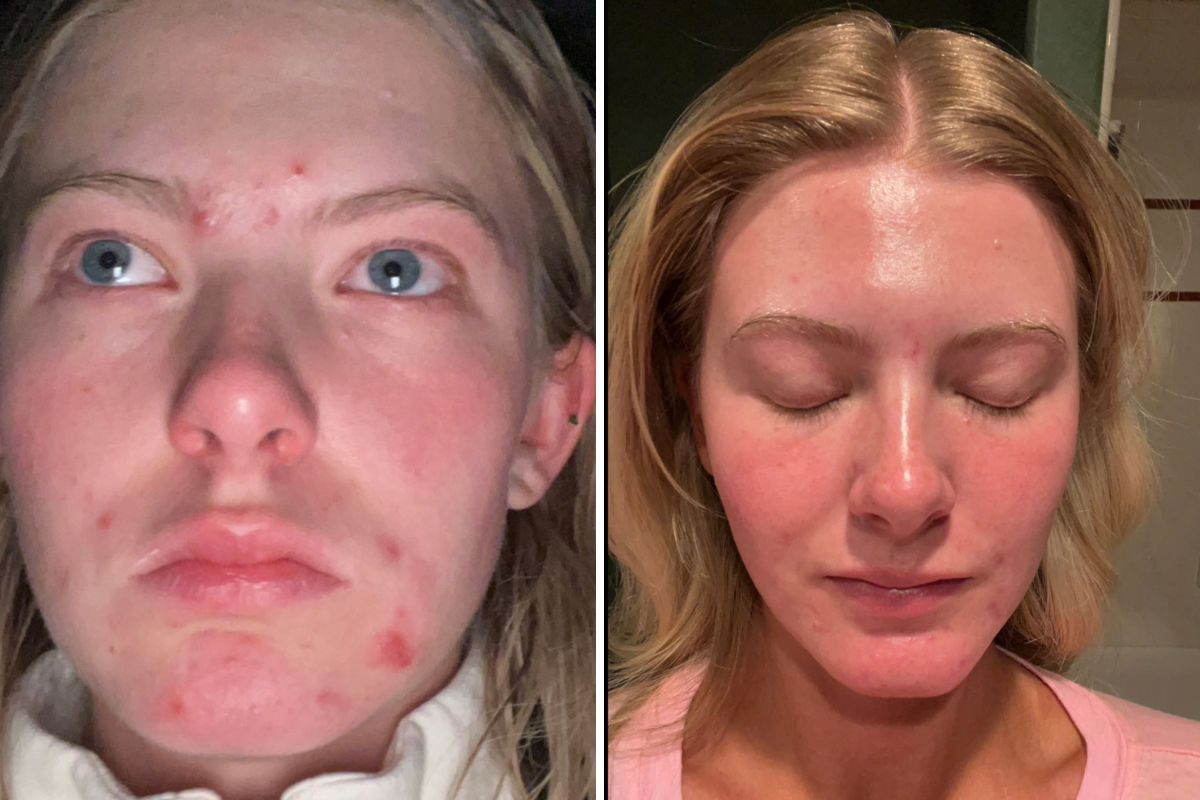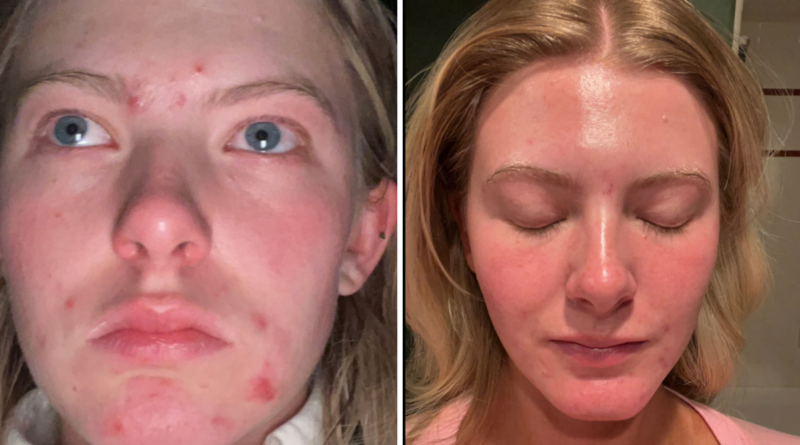Gen Z Woman Reveals Small Life Change That Overcame Her Anxiety
The social media manager and influencer who stopped drinking caffeinated beverages in March to help her anxiety has been sharing her experience on TikTok.
“I quit caffeine when I realized it made my anxiety worse,” says Kylie Ohlson, 20, of Salt Lake City.
Ohlson said Newsweek that he used to drink more than two cups of caffeinated drinks a day. The National Coffee Association reports that by 2022, Americans will drink nearly 517 million cups of coffee each day, and the stimulating drink is now the most popular among 18-year-olds. 24.
Ohlson said she felt she had no choice but to remove caffeine from her diet after noticing several side effects, including eye problems and stomach problems.
“Since I quit caffeine, I wake up with more energy. I don’t feel the need to drink coffee first thing in the morning,” Ohlson said. “I feel more focused and relaxed throughout the day.”

TikTok/@kylieann.n
“I had constant eye twitches and I always felt like I was on edge,” Ohlson said of caffeine’s effects on him. Along with the anxiety, I noticed stomach problems—even with water and a meal before drinking—bloating and acne, and early menstrual symptoms that increased, such as mood swings. no feelings and pains.”
He added: “I wanted to feel and look my healthiest. So I decided to see how I would feel without caffeine.”
According to Johns Hopkins Medicine, coffee has many benefits, including increasing energy and preventing serious diseases such as Parkinson’s and heart disease. However, it is not the best choice for people with anxiety.
Amy Baertschi, a registered dietitian, spoke with her Newsweek about the relationship between coffee and anxiety.
“It’s important to remember that caffeine is a central nervous system stimulant and will increase heart rate, blood pressure, and can cause heart palpitations when consumed in high doses,” said Baertschi, who lives in Zurich.
He continued: “For people with pre-existing anxiety, adding something that will worsen anxiety symptoms (such as heart palpitations or palpitations) will make the symptoms worse.”
During the TikTok video, which received more than 101,000 views and 12,000 likes, Ohlson said that giving up caffeine “healed” her. She added that she was in a better place mentally and that her skin had “never been so clear and bright.”
He told Newsweek: “I’m an alcoholic girl. I like to wake up and drink coffee or juice. The hardest part of quitting caffeine was losing the habit.”
According to the CDC, three to five cups of regular coffee is fine as part of a healthy diet. Ohlson says he replaced coffee with water with electrolytes—though he didn’t rule out the odd latte as a “cure.”
“I also remind myself that everything in moderation is important,” she said. with two lattes since March.
“Overall, my mental health has improved, and I no longer struggle with terrible anxiety. Of course, I have my day, but when I’m worried, I feel like I’m in control more and I can handle it more easily.”
In the comments section of the video, TikTok users shared their experiences of giving up caffeine or limiting what they eat.
“I stopped drinking caffeine on an empty stomach (I knew it was bad for me) and omg my anxiety is SO much less,” one user wrote.
“Ughhh I’m moody without caffeine I want to but I can’t,” another added.
Commenter said: “I did the same thing!!! Caffeine used to make me so nervous [and] cutting it out was very healing for me.”
Is there a health issue that is bothering you? Let us know at health@newsweek.com. We can ask experts for advice, and your story can be featured Newsweek.
Uncommon Knowledge
Newsweek is committed to challenging conventional wisdom and finding connections when investigating commonalities.
Newsweek is committed to challenging conventional wisdom and finding connections when investigating commonalities.
#Gen #Woman #Reveals #Small #Life #Change #Overcame #Anxiety
